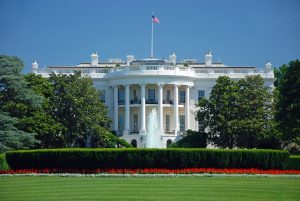On July 13, 2022, the California Second District Court of Appeal issued a published decision reversing a trial court’s dismissal of a policyholder’s COVID-19 coverage claim. In Marina Pacific Hotel & Suites, LLC v. Fireman’s Fund Insurance Company, the Court took two remarkable steps in the context of nationwide COVID-19 litigation. First, the Court recognized that courts must accept as true properly alleged facts when deciding a pleading challenge. Second, the Court did not merely recite the long-established rules of construction for insurance policies that apply in California and most states; rather, it followed those rules by engaging with the actual policy language.
Articles Posted in Coronavirus (COVID-19)
The Louisiana Court of Appeal Gets It Right on COVID Coverage
 This week the Louisiana Court of Appeal found coverage for coronavirus and COVID-19 claims by reading the actual insurance policy language and relying on long-established precedent governing the interpretation of insurance policies. Particularly, the court found that the presence of coronavirus on the insured premises that slowed down the business operations of the policyholder triggered all-risk coverage because it caused “physical loss or damage” to the policyholder’s business property. The court rejected the insurer’s arguments that coverage was not available absent (a) any physical or structural alteration to the property; (b) completely shutting down the policyholder’s business operations; and (c) rendering that property uninhabitable. The court also rejected the insurer’s argument that the policy’s “period of restoration” clause—which indicated the interruption period ends when damaged property is restored, repaired or replaced—required a physical alteration to property, holding the policyholder’s efforts to remove coronavirus by cleaning or disinfection fell within the “period of restoration.”
This week the Louisiana Court of Appeal found coverage for coronavirus and COVID-19 claims by reading the actual insurance policy language and relying on long-established precedent governing the interpretation of insurance policies. Particularly, the court found that the presence of coronavirus on the insured premises that slowed down the business operations of the policyholder triggered all-risk coverage because it caused “physical loss or damage” to the policyholder’s business property. The court rejected the insurer’s arguments that coverage was not available absent (a) any physical or structural alteration to the property; (b) completely shutting down the policyholder’s business operations; and (c) rendering that property uninhabitable. The court also rejected the insurer’s argument that the policy’s “period of restoration” clause—which indicated the interruption period ends when damaged property is restored, repaired or replaced—required a physical alteration to property, holding the policyholder’s efforts to remove coronavirus by cleaning or disinfection fell within the “period of restoration.”
SXSW Seeks Resolution of Federal’s Duty to Defend Underlying Ticketholder Class Action Arising from COVID-19 Cancellation
The widespread denial of coverage under first-party property insurance policies for business interruption losses resulting from the COVID-19 pandemic has been extensively reported, but so far less attention has been paid to related third-party claims and attendant coverage issues arising under liability insurance policies. When ticketed attendees sued the organizer of the South by Southwest (SXSW) music and film festival, SXSW LLC, for refunds after the 2020 annual event was cancelled because of the COVID-19 pandemic, the company’s liability insurer, Federal Insurance Company, refused to make good its duty to defend. SXSW has now sued Federal in the U.S. District Court for the Western District of Texas seeking a declaration that Federal owes a duty to defend SXSW against the underlying putative class action, providing insight on COVID-19-related liability coverage issues.
Federal Court Holds Allegations of Coronavirus on Premises Sufficiently Allege Physical Loss of or Damage to Property

Judge Catherine C. Eagles of the U.S. District Court for the Middle District of North Carolina made the right call by allowing a large hospital system policyholder to litigate the merits of its COVID-19 business interruption claim to recovery where so many others have had that door improperly and prematurely shut by other federal courts recently.
Couch’s “Physical Alteration” Fallacy: Its Origins and Consequences
Look at virtually any COVID-19 case favoring an insurer, and you will find a citation to Section 148:46 of Couch on Insurance. It is virtually ubiquitous: courts siding with insurers cite Couch as restating a “widely held rule” on the meaning of “physical loss or damage”—words typically in the trigger for property-insurance coverage, including business-income coverage. It has been cited, ad nauseam, as evidence of a general consensus that all property-insurance claims require some “distinct, demonstrable, physical alteration of the property.” Indeed, some pro-insurer decisions substitute a citation to this section for an actual analysis of the specific language before the court.
In a new article in the Tort, Trial & Insurance Practice Law Journal, colleague Scott Greenspan and co-authors address the history and development of the “physical loss” rule, Couch’s distortion of it, and its impact on contemporary litigation. They also explore the correct rule, as explained in pre-and post-Couch precedent and in other treatises that more accurately state the law. Finally, the authors articulate the severe consequences that will follow for policyholders—banks, businesses, and homeowners—if Couch’s rule, continues to be blindly followed by courts without knowledge of its origins in legal quicksand.
Zurich Pleads with Court to Ignore Science

In a recent federal court filing, Zurich American Insurance Company asked the district court to ignore the entirety of science regarding COVID-19 in order to support Zurich’s denial of all coverage for COVID-19 business interruption losses.
How Capri Holdings Ltd. Could Provide a Path Past Mama Jo’s
A recent article in Law360 shines a spotlight on an Amended Complaint filed by Pillsbury’s award-winning Insurance Recovery and Advisory Group in a significant insurance recovery action seeking coverage for COVID-19 business interruption. In it, the Amended Complaint is described as a “beefed-up filing” where our colleagues have “unleashed a deluge of scientific studies on COVID-19.” The article suggests that the “the arguments outlined in Tuesday’s filing could be a potential avenue around Mama Jo’s v. Sparta Insurance Co., a heavily cited decision in which the Eleventh Circuit held that policyholders must show their properties required physical repairs to constitute direct physical loss. A number of insurers have pointed to that ruling in shooting down COVID-19 insurance cases.”
For more information on this or related issues, please contact Joseph Jean, Scott Greenspan, Benjamin Tievsky or Janine Stanisz.
Is Your Insurance Program Ready for the Biden Administration?
 The Biden administration has hit the ground running with executive orders, regulatory and legislative priorities, and cabinet-level and other top posts being announced on a daily basis. Our public policy colleagues have been closely tracking many of the policy priorities of the new administration and highlighting important regulatory and legislative developments that businesses can expect coming down the pipeline.
The Biden administration has hit the ground running with executive orders, regulatory and legislative priorities, and cabinet-level and other top posts being announced on a daily basis. Our public policy colleagues have been closely tracking many of the policy priorities of the new administration and highlighting important regulatory and legislative developments that businesses can expect coming down the pipeline.
California Federal Court Offers Clear Pathway to Coverage for Coronavirus/COVID-19-Related Business Interruption and Civil Authority Losses
 Since the beginning of the COVID-19 business interruption insurance coverage battles, insurers have labored to pour cold water on these claims—often hiring the biggest and wealthiest law firms in America to crush hair salons, motels, restaurants and bars represented by solo practitioners or lawyers with little prior insurance coverage experience. Not surprisingly, insurers have been successful in many of these early David-versus-Goliath cases (many of which involved policies with virus exclusions that the policyholders were seeking to avoid by pointing to government shutdown orders—and not the virus—as the sole cause of their loss), as we recently discussed. But the tide is turning as, increasingly, courts are applying the policies as written—rather than how insurers wished they had been written—and finding clear paths to coverage for COVID-19 claims. One such recent California federal district court case, Pez Seafood DTLA, LLC v. Travelers Indemnity Co., is a must-read for policyholders with COVID-19 losses, especially in California.
Since the beginning of the COVID-19 business interruption insurance coverage battles, insurers have labored to pour cold water on these claims—often hiring the biggest and wealthiest law firms in America to crush hair salons, motels, restaurants and bars represented by solo practitioners or lawyers with little prior insurance coverage experience. Not surprisingly, insurers have been successful in many of these early David-versus-Goliath cases (many of which involved policies with virus exclusions that the policyholders were seeking to avoid by pointing to government shutdown orders—and not the virus—as the sole cause of their loss), as we recently discussed. But the tide is turning as, increasingly, courts are applying the policies as written—rather than how insurers wished they had been written—and finding clear paths to coverage for COVID-19 claims. One such recent California federal district court case, Pez Seafood DTLA, LLC v. Travelers Indemnity Co., is a must-read for policyholders with COVID-19 losses, especially in California.
Don’t Be Fooled by the Numbers: How Insurance Companies Are Attempting to Create a False Narrative on COVID-19 Insurance Claims
 Since the novel coronavirus landed in America, the insurance industry has worked hard to create the impression that there is no coverage for business interruption losses resulting from the pandemic. For the most part, insurers have discussed the “intent” of the policies and avoided specific policy analysis. The insurer disinformation effort recently started including citations to lists of court decisions obtained to date—as if insurance coverage should be decided not on the terms of the contracts at issue but instead on the basis of an early win/loss record. A review of court statistics, along with two recent court decisions, expose the fallacy of the insurers’ argument.
Since the novel coronavirus landed in America, the insurance industry has worked hard to create the impression that there is no coverage for business interruption losses resulting from the pandemic. For the most part, insurers have discussed the “intent” of the policies and avoided specific policy analysis. The insurer disinformation effort recently started including citations to lists of court decisions obtained to date—as if insurance coverage should be decided not on the terms of the contracts at issue but instead on the basis of an early win/loss record. A review of court statistics, along with two recent court decisions, expose the fallacy of the insurers’ argument.
 Policyholder Pulse
Policyholder Pulse


